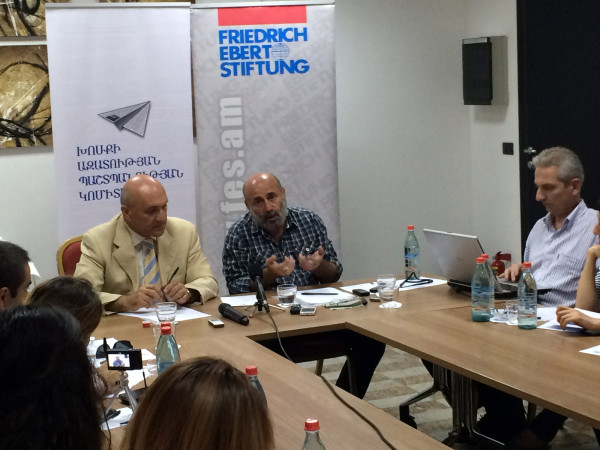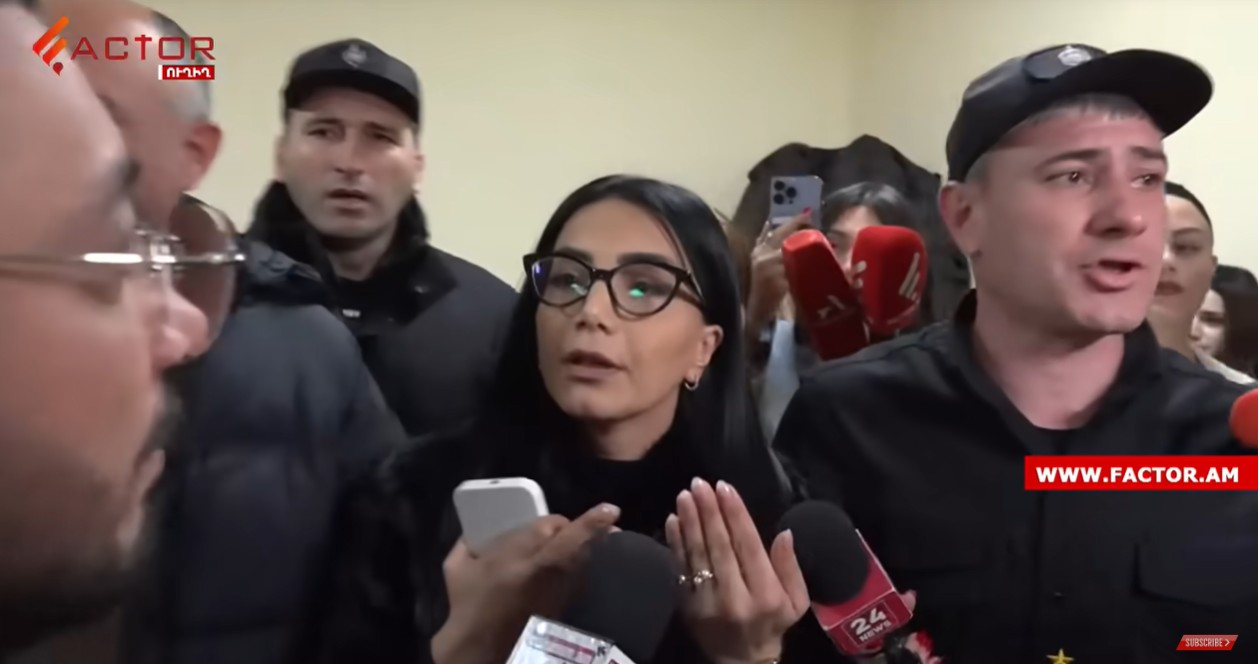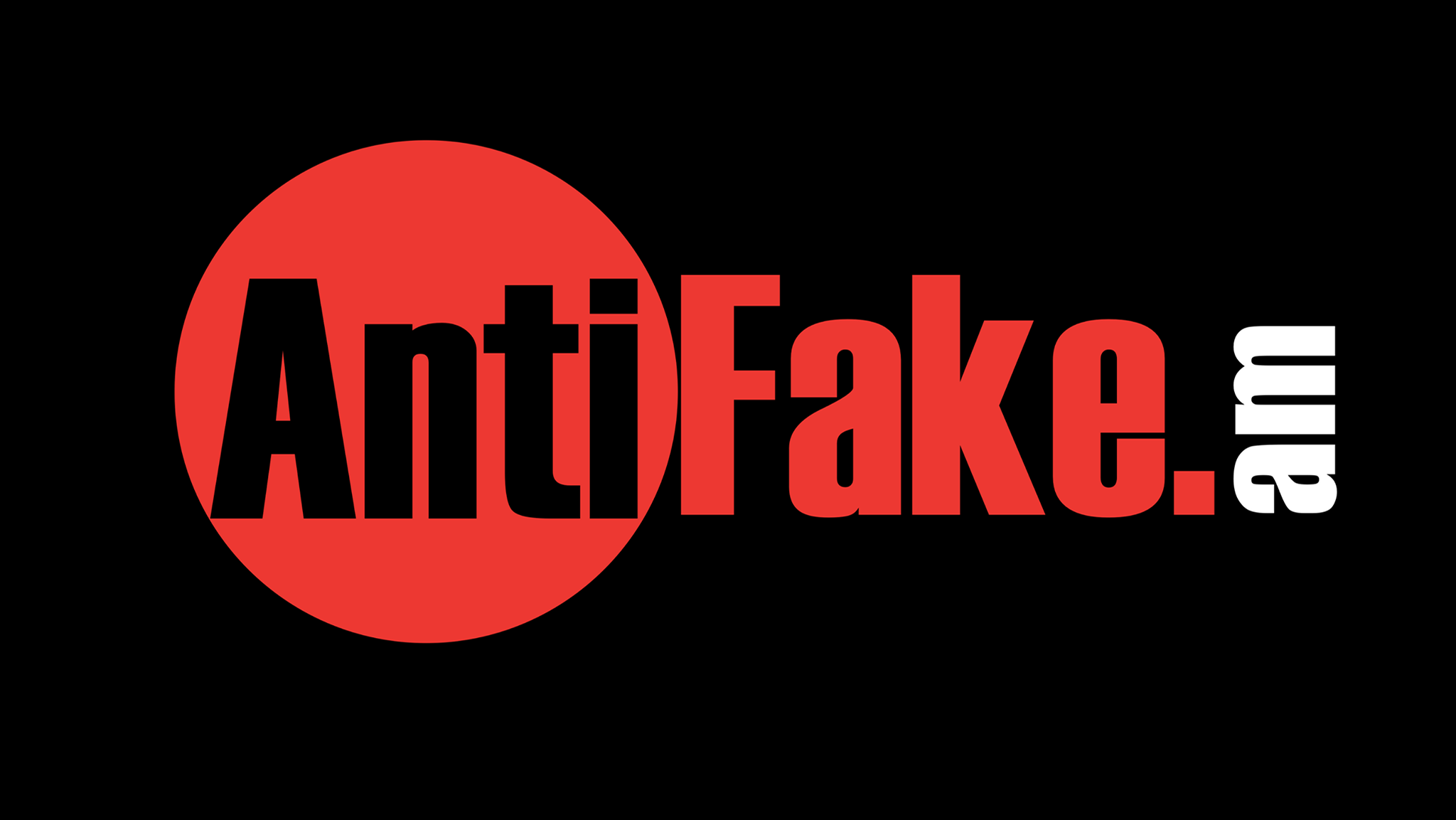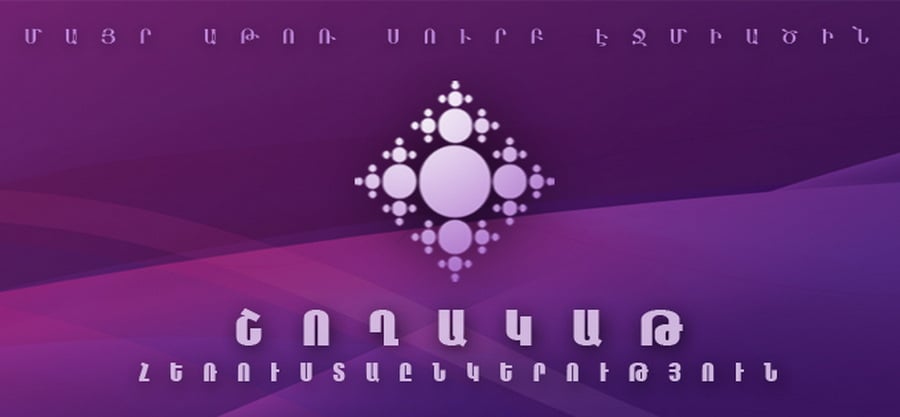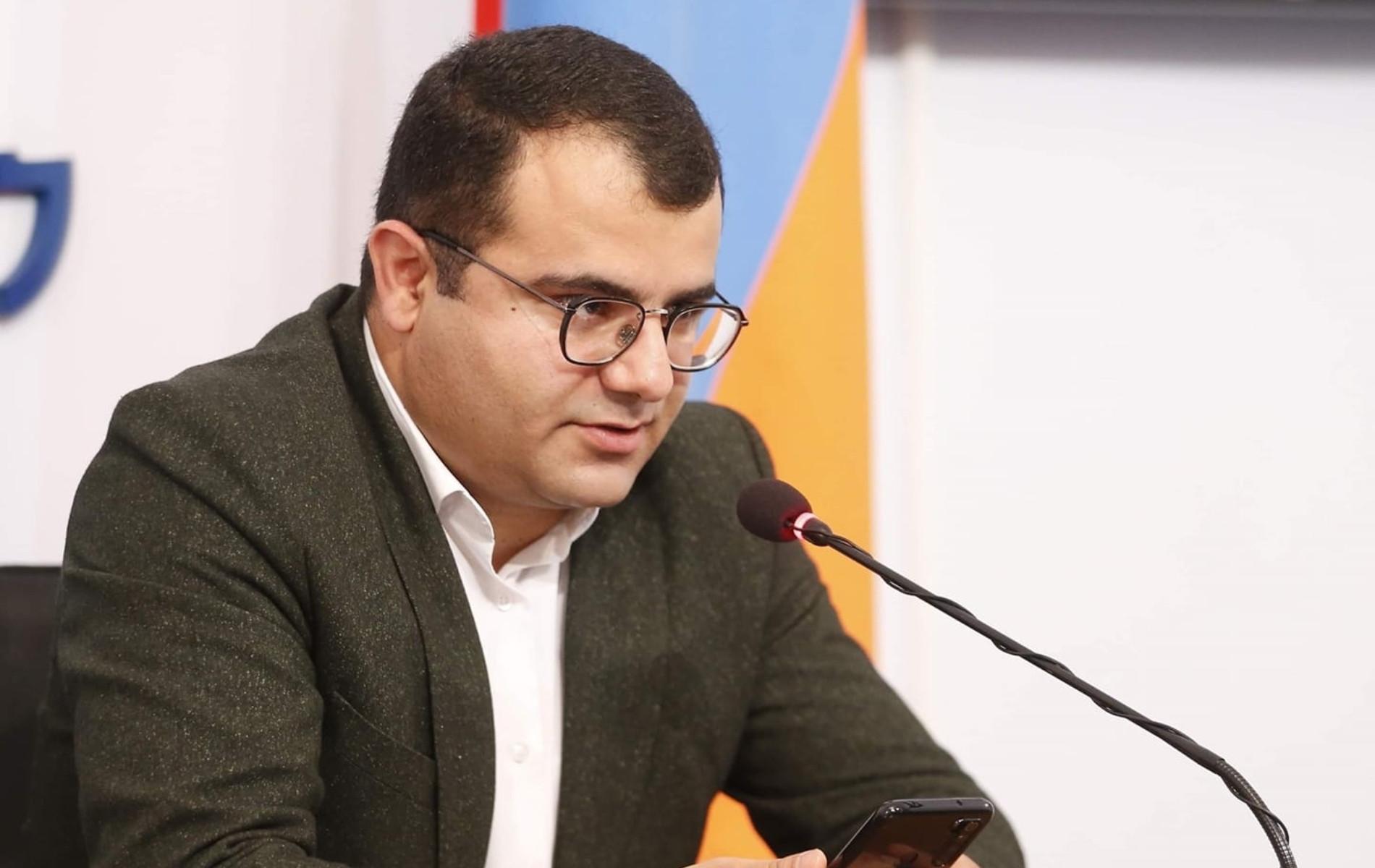 Committee to Protect Freedom of Expression, with the assistance of Friedrich Ebert Foundation, organized a round-table meeting on the topic “Development of New Media in Armenia and Copyright Protection” on August 28, at the Congress Yerevan Hotel.
Committee to Protect Freedom of Expression, with the assistance of Friedrich Ebert Foundation, organized a round-table meeting on the topic “Development of New Media in Armenia and Copyright Protection” on August 28, at the Congress Yerevan Hotel.
The chairman of CPFE Ashot Melikyan, stressing the importance of the topic, noted that along with the development of the new media, plagiarism and copyright infringements have reached unprecedented levels.
The media expert and a member of the Media Ethics Observatory Mesrop Harutiunyan made a presentation. First he dwelt on the notions “plagiarism” and “copyright infringement”, stressing that we often do not distinguish them from each other. “If I publish the poem Anoosh by Tumanyan and sign my name, this is plagiarism. A copyright infringement is when the name of the author is stated but the piece is published without a permission of the author or his or her successor,” Mesrop Harutiunyan said.
According to the expert, plagiarism and copyright infringements have become a challenge, especially as the internet, the new media are developing. A dishonest “copy-paste” practice has formed in the media; there are innumerable cases when the journalists and the media plagiarize or infringe copyright, using materials of other media.
Mesrop Harutiunyan reminded that several years ago the heads of some media prepared an agreement with a view to self-regulation. Amendments were made to the RA Law on Copyright and Related Rights upon their initiative. With a view to fighting dishonest conduct of the media, a group entitled “For Conscientious Journalism” has been set up on Facebook where the journalists post their articles which have been published by other media without an adequate reference, urging to eliminate a copyright infringement. Sometimes there is success, sometimes there is not. “This is a good way of self-regulation but it is not enough to resolve the problem because it is impossible to track and find all the copy-pasted materials on the web.”
By the way, the expert highlighted the fact that the journalists are reluctant to go to court even though they keep drawing attention to plagiarism, copyright infringements. So far there have been only three court cases. In addition, in two of the three cases the founder of the website Hetq.am applied to court.
The lawyer Ara Ghazaryan explained the weak development of copyright protection by the lack of judicial practice. In his opinion, it causes concerns that the journalists do not sue for copyright infringements. According to the lawyer, the situation of disputes over insult and defamation has improved because there have been an innumerable amount of court cases. Meanwhile, copyright protection is not developing because there are almost no such court cases. “Maybe the journalists feel awkward to sue their colleagues…?” Ara Ghazaryan asked.
CPFE chairman Ashot Melikyan said this is true. “But if we really want to separate quality journalism from those who are distorting this sphere, it is necessary to file suits unless, of course, it is impossible to resolve the problem using the self-regulation mechanism.”
The editor of Newsbook.am Gohar Veziryan brought a lot of examples from her own experience. “My media publishes a material in the result of long work, a few minutes later another media uses that material as its exclusive material. There are media which publish 500 materials a day with only two employees. In this case, it is necessary to go to court with a specific claim,” Veziryan said. According to her, aside from not producing their own product, they illegally spread the materials of other media, draw profit and at the same time also advise their colleagues to use the friendly mechanisms available on the web.
In addition, the editor of Newsbook.am is especially offended by the fact that even the accomplished media have started going for plagiarism and copyright infringements. Meanwhile, Suren Deheryan, chairman of Journalists for Future NGO, thinks the web has no boundaries, and therefore the websites without a conscientious conduct in journalism will continue to operate.
With a view to solving the problem, Ara Ghazaryan, international law expert, suggested developing a concept note and creating an independent body which will provide extrajudicial copyright protection.
CPFE Chairman Ashot Melikyan welcomed this idea and, closing the discussion, he noted that quality media with self-respect should act in accordance with law and professional ethics and call the “copy-paste” practice unacceptable and commit to refraining from it.
Lilit Hovhannisyan

